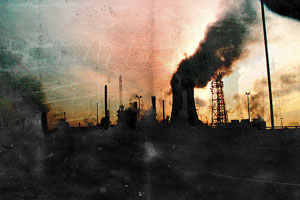India, one of the world’s emerging powers, is also a country of endemic poverty. More people live in India without access to basic electricity than live in the entire United States. Thirty-five percent of the population lives on under a dollar a day; 80 percent lives on under two dollars a day.
And yet, when President Obama flew to India last week for the longest overseas stay of his administration so far, climate change was at the top of the agenda. Obama and Indian Prime Minister Manmohan Singh announced the creation of a joint clean energy research project based in India, and Obama exhorted Indian leaders in an address to that country’s parliament to work with the US on curbing greenhouse gas emissions.
How, then, did a country with such basic energy needs become one of the most influential players in the global fight against climate change?
Though per capita emissions remain relatively low, due to its large population, India is one of the world’s largest emitters of greenhouse gases. Data collected by the United Nations list the country as the third largest emitter of carbon dioxide, due mostly to the country’s rapidly expanding energy sector. India is also an emerging economic power, the second-fastest-growing economy in the world next to China, and a leader among developing nations, which have largely resisted constraints on greenhouse gas emissions.
All of these factors are likely to play out at the next U.N. conference on climate change in Cancun later this month. Analysts expect India to come to the negotiating table with “a slightly strengthened position,” according to Shravya Reddy, an India analyst at the Natural Resources Defense Council in New York.
Need to Know spoke with Reddy in this week’s edition of the Climate Desk podcast to understand more about the role this emerging power, and close ally of the US, will play in international climate change negotiations. As Reddy explained, Indian leaders have signaled their willingness to achieve progress at the Cancun conference, and that willingness has only enhanced the country’s already-formidable bargaining power.
“It really wants to be a deal-maker, not a deal-breaker,” Reddy said of India. “And it is moving toward a far more constructive role, and shedding its old image of being an obstructionist in international politics.”














